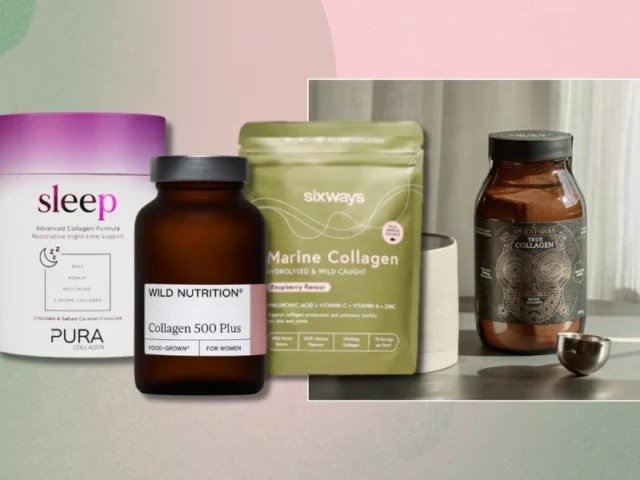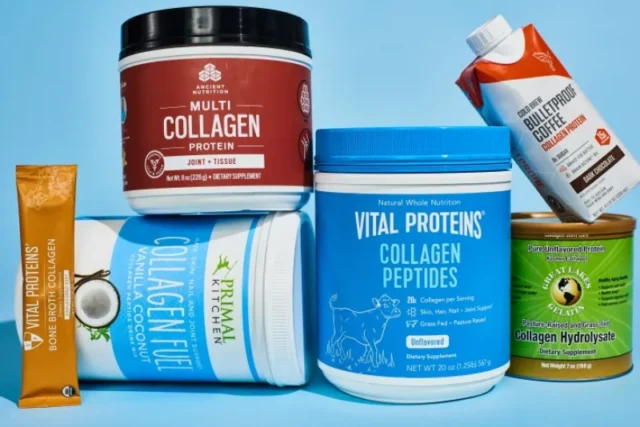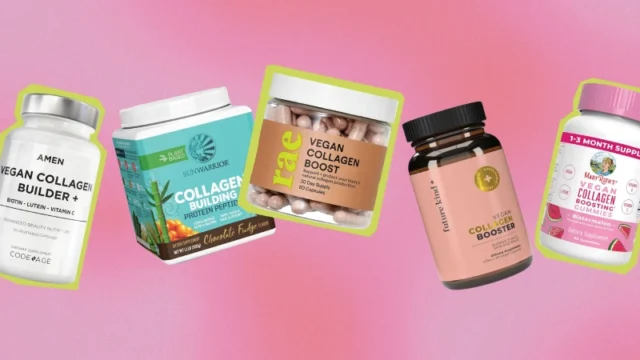In the quest for youthful, radiant skin, collagen supplements have emerged as a popular contender. As we age, our bodies naturally produce less collagen, leading to dryness, fine lines, and a loss of elasticity. This decline has ignited a flurry of interest in whether these innovative supplements can truly rejuvenate our skin from the inside out. With an array of products lining the shelves and countless testimonials flooding social media, it’s essential to sift through the noise and understand the science behind the claims. Do collagen supplements genuinely deliver the promised benefits, or are they just another wellness trend? Join us as we delve into the research and expert opinions to uncover the truth about collagen supplements and their potential role in maintaining youthful, glowing skin. Your journey to informed skincare choices starts here.
Understanding Collagen: The Protein Behind Youthful Skin
Collagen is a fibrous protein that serves as a fundamental building block for our skin, hair, nails, bones, and connective tissues. It provides structural support, elasticity, and strength, making it crucial for maintaining the youthful appearance and functionality of the skin. Comprising approximately 30% of the body’s total protein content, collagen is often referred to as the “glue” that holds everything together. The ability of collagen to provide firmness and elasticity is what gives youthful skin its smooth and plump appearance.
As we go through life, the rate of collagen production in our bodies begins to decline naturally. This process typically starts in our mid-20s and continues to decrease by about 1% per year thereafter. Environmental factors such as UV exposure, pollution, and lifestyle choices like smoking and poor diet can further accelerate collagen degradation. Consequently, the loss of collagen manifests visibly as wrinkles, sagging skin, and a generally aged appearance.
Given its pivotal role in skin health and aging, it is no wonder that collagen has become a focal point in the beauty and wellness industries. From topical creams and serums to ingestible supplements, products aimed at boosting collagen levels are now ubiquitous. But what does science say about these supplements, and can they truly deliver on their promises? To answer this, we need to delve deeper into the complex relationship between collagen and aging.
The Science of Aging: How Collagen Levels Change Over Time
The aging process is an intricate interplay of genetic, biological, and environmental factors, with collagen synthesis and degradation being central to this phenomenon. Collagen is produced by fibroblasts, specialized cells located in the dermis, the second layer of the skin. These cells are responsible for creating the dense network of collagen fibers that support skin structure. However, as we age, the activity of fibroblasts diminishes, leading to a reduction in collagen production.
In addition to the natural decline in collagen synthesis, the body’s ability to repair and regenerate collagen fibers also wanes over time. Enzymes known as matrix metalloproteinases (MMPs) become more active with age, breaking down existing collagen at an accelerated rate. This double-edged sword of decreased production and increased degradation results in the thinning of the dermal layer and the appearance of fine lines and wrinkles.
External factors such as ultraviolet (UV) radiation from the sun play a significant role in collagen breakdown. UV rays penetrate the skin and trigger the production of free radicals, which in turn activate MMPs and other enzymes that degrade collagen. This process, known as photoaging, is responsible for many of the visible signs of aging, including deep wrinkles and hyperpigmentation. Therefore, protecting the skin from UV damage and supporting collagen production are key strategies for maintaining youthful skin.
The Role of Collagen in Skin Health
Collagen’s role in skin health extends beyond merely providing structural support. It also contributes to skin hydration and elasticity. Collagen fibers form a dense network within the dermis, where they work in tandem with other essential proteins like elastin and hyaluronic acid. Elastin provides skin with its ability to stretch and return to its original shape, while hyaluronic acid helps retain moisture, keeping the skin plump and hydrated.
When collagen levels are optimal, this intricate matrix functions efficiently, resulting in firm, smooth, and supple skin. However, as collagen diminishes with age, the skin loses its ability to retain moisture and elasticity, leading to dryness and the formation of wrinkles. The disruption of this balance underscores the importance of maintaining adequate collagen levels for overall skin health.
Moreover, collagen plays a critical role in wound healing. When the skin is injured, fibroblasts are activated to produce collagen, which helps to form new tissue and close wounds. This reparative function highlights collagen’s importance not only in aesthetic aspects of skin health but also in its ability to respond to damage and maintain the skin’s integrity. Given these multifaceted roles, it’s clear why collagen is a focal point in discussions about skin aging and rejuvenation.
Types of Collagen Supplements: What You Need to Know
Collagen supplements come in various forms, each with its own set of benefits and absorption characteristics. The most common types available in the market include hydrolyzed collagen (collagen peptides), gelatin, and undenatured collagen. Understanding the differences between these types is crucial for making an informed choice tailored to your specific needs.
Hydrolyzed collagen, or collagen peptides, is the most popular form of collagen supplement. It is produced by breaking down the collagen protein into smaller peptides through a process called hydrolysis. This form is highly bioavailable, meaning that it is easily absorbed and utilized by the body. Collagen peptides are often derived from bovine, porcine, or marine sources, and are available in powder, capsule, and liquid forms. They are versatile and can be easily incorporated into various foods and beverages.
Gelatin is another form of collagen that is often used in cooking and food products. It is produced by partially breaking down collagen, resulting in a gel-like substance that can be used to thicken and stabilize foods. While gelatin is also beneficial for skin health, its larger molecular size compared to hydrolyzed collagen means it may not be as readily absorbed by the body. Nonetheless, it still offers a good source of collagen and can contribute to overall skin health.
Undenatured collagen, or native collagen, is a less processed form of collagen that retains its original structure. This type is typically used to support joint health rather than skin health, as it is believed to help modulate the immune response and reduce inflammation in conditions like osteoarthritis. While it may not be as effective for skin rejuvenation as hydrolyzed collagen, it still plays a role in overall connective tissue health.
Benefits of Collagen Supplements for Skin
The potential benefits of collagen supplements for skin are supported by a growing body of scientific research. One of the primary advantages is their ability to improve skin hydration. Studies have shown that collagen peptides can enhance the skin’s moisture levels, reducing dryness and promoting a more supple appearance. This is particularly beneficial for individuals with aging skin, which tends to lose its ability to retain moisture naturally.
In addition to hydration, collagen supplements may also improve skin elasticity. Research indicates that regular intake of collagen peptides can increase skin elasticity, making it more resilient to the formation of wrinkles and sagging. This improvement in elasticity is attributed to the peptides’ ability to stimulate fibroblast activity and enhance the production of new collagen fibers in the dermis.
Furthermore, collagen supplements have been shown to reduce the appearance of wrinkles and fine lines. Clinical studies have demonstrated that individuals who consume collagen peptides regularly experience a significant reduction in wrinkle depth and volume. This anti-aging effect is believed to result from the peptides’ ability to support the skin’s structural integrity and promote the regeneration of damaged collagen fibers. Overall, these benefits highlight the potential of collagen supplements as a valuable tool in the quest for youthful, radiant skin.
How to Choose the Right Collagen Supplement
Selecting the right collagen supplement involves considering several factors, including the source, type, and form of collagen, as well as any additional ingredients that may be included. One of the first decisions to make is whether to choose collagen derived from bovine, porcine, or marine sources. Bovine collagen, sourced from cows, is rich in Type I and Type III collagen, which are beneficial for skin, hair, and nail health. Porcine collagen, derived from pigs, also contains Type I and Type III collagen but is less commonly used in supplements.
Marine collagen, sourced from fish, is particularly popular due to its high bioavailability and absorption rate. It primarily contains Type I collagen, which is abundant in the skin and essential for maintaining its structure and integrity. Additionally, marine collagen is often considered to be more environmentally sustainable and may be preferable for individuals with dietary restrictions related to beef or pork.
The form of collagen supplement is another important consideration. Collagen peptides in powder form offer versatility and can be easily mixed into beverages and foods. Capsules provide a convenient and precise dosage, while liquid collagen supplements may offer faster absorption. It’s also worth looking into any additional ingredients, such as vitamins, minerals, and other bioactive compounds, that may enhance the supplement’s effectiveness. Ensuring that the product is free from additives, preservatives, and artificial flavors is crucial for choosing a high-quality supplement.
The Best Sources of Collagen: Natural vs. Supplementation
While collagen supplements can provide a concentrated source of this essential protein, it is also possible to boost collagen levels through natural dietary sources. Foods rich in collagen include bone broth, chicken skin, fish skin, and gelatin-based products. Bone broth, in particular, has gained popularity for its high collagen content and potential health benefits. Slow-cooking bones and connective tissues release collagen into the broth, making it a nutrient-dense option for supporting skin health.
In addition to direct sources of collagen, certain nutrients play a crucial role in supporting the body’s natural collagen production. Vitamin C is essential for collagen synthesis, as it helps stabilize the collagen molecule and promote its formation. Foods rich in vitamin C, such as citrus fruits, berries, and leafy greens, should be included in the diet to support collagen production. Other nutrients, such as zinc and copper, also play a role in collagen synthesis and can be obtained from foods like nuts, seeds, and shellfish.
While natural dietary sources of collagen and its supporting nutrients are beneficial, they may not always provide the same concentrated dose as supplements. For individuals with specific skin health goals or those looking for a more targeted approach, collagen supplements can be an effective addition to a balanced diet. Combining both natural sources and supplementation can provide comprehensive support for maintaining youthful, radiant skin.
Potential Side Effects and Considerations
While collagen supplements are generally considered safe for most people, there are some potential side effects and considerations to keep in mind. Some individuals may experience digestive issues, such as bloating, gas, or diarrhea, when taking collagen supplements. These side effects are typically mild and can often be mitigated by starting with a lower dose and gradually increasing it.
Allergic reactions to collagen supplements are rare but possible, particularly for those with allergies to the source of the collagen, such as fish or shellfish. It’s important to read product labels carefully and consult with a healthcare professional if you have known allergies or sensitivities. Additionally, individuals with specific medical conditions or those taking certain medications should consult their healthcare provider before starting a collagen supplement regimen.
It’s also worth noting that the quality and purity of collagen supplements can vary widely between brands. Choosing a reputable brand that conducts third-party testing and provides transparent information about sourcing and manufacturing practices is essential for ensuring safety and efficacy. Being an informed consumer can help you navigate the market and select a high-quality product that aligns with your health and wellness goals.
Complementing Collagen Supplements with a Healthy Lifestyle
While collagen supplements can offer significant benefits for skin health, they are most effective when combined with a healthy lifestyle. Proper skincare, a balanced diet, regular exercise, and adequate hydration are all essential components of maintaining youthful, radiant skin. Incorporating antioxidant-rich foods, such as fruits and vegetables, can help protect the skin from oxidative stress and support collagen integrity.
Sun protection is another critical aspect of preserving collagen levels and preventing premature aging. Using broad-spectrum sunscreen with an SPF of 30 or higher, wearing protective clothing, and seeking shade during peak sun hours can help minimize UV damage and maintain skin health. Additionally, avoiding smoking and limiting alcohol consumption can further support collagen production and overall skin health.
Stress management and sufficient sleep are also important for maintaining healthy skin. Chronic stress and lack of sleep can negatively impact collagen production and accelerate the aging process. Incorporating relaxation techniques, such as meditation, yoga, and deep breathing exercises, can help manage stress and promote overall well-being. By adopting a holistic approach to skincare and wellness, you can enhance the benefits of collagen supplements and achieve a more youthful, glowing complexion.
Conclusion: Are Collagen Supplements Worth It for Youthful Skin?
The quest for youthful, radiant skin is a multifaceted journey that involves understanding the complex interplay of factors that contribute to skin aging. Collagen, as a fundamental component of skin structure and health, plays a pivotal role in maintaining a youthful appearance. While the natural decline in collagen production is an inevitable part of aging, collagen supplements offer a promising avenue for supporting skin hydration, elasticity, and overall integrity.
Scientific research and clinical studies have provided evidence for the potential benefits of collagen supplements in reducing wrinkles, enhancing skin moisture, and improving elasticity. However, the effectiveness of these supplements can vary based on factors such as the type and source of collagen, dosage, and individual differences in skin health and metabolism. Therefore, choosing a high-quality collagen supplement and incorporating it into a comprehensive skincare and wellness routine is essential for achieving the best results.
Ultimately, collagen supplements can be a valuable addition to your skincare regimen, but they are most effective when complemented by a healthy lifestyle. Protecting your skin from UV damage, maintaining a balanced diet, staying hydrated, managing stress, and getting adequate sleep are all crucial for supporting collagen production and overall skin health. By taking a holistic approach to skincare, you can enhance the benefits of collagen supplements and enjoy a more youthful, radiant complexion for years to come.




